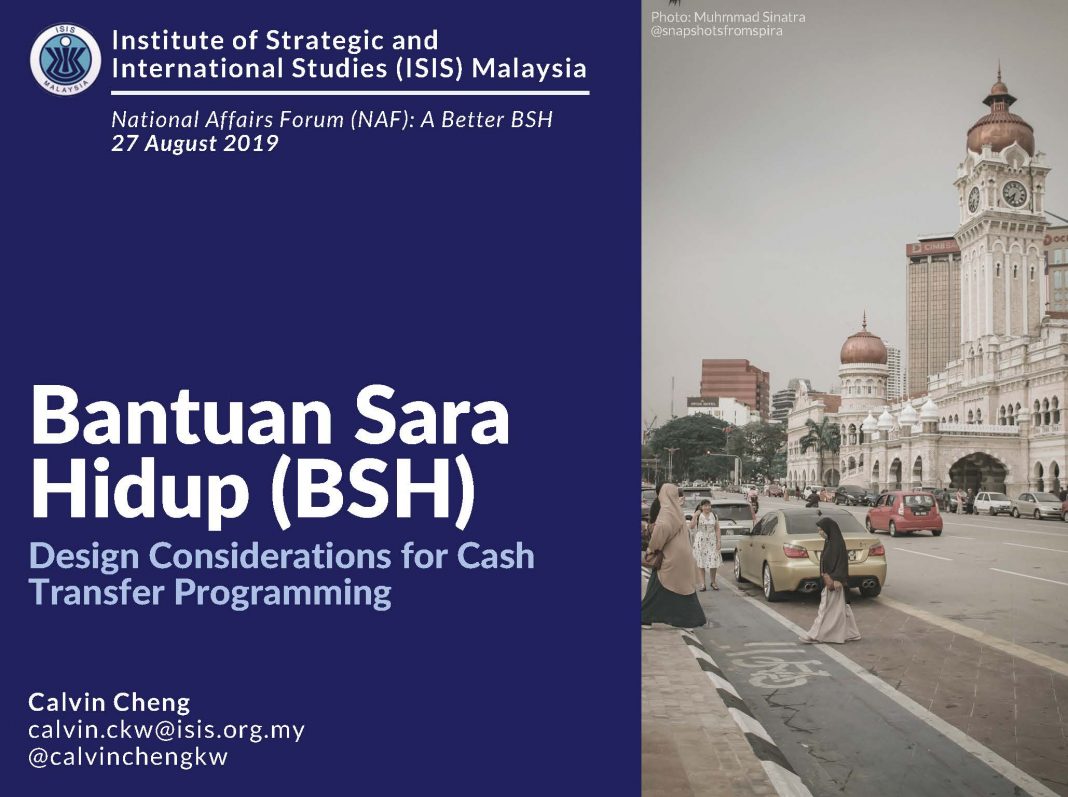Bantuan Sara Hidup (BSH), the national cash transfer program formerly known as BR1M, has undergone many changes since its introduction in 2012. In 2018, it was changed yet again, with a new benefit structure that took into account variations in household size. Its proponents argue that cash transfer programs have beneficial impacts on low-income household–while detractors argue that cash assistance discourages work, and that households should instead be self-reliant. But just how effective are cash transfer programs like BSH compared to other types of assistance? How can BSH be further improved? What is the role of BSH in the future of social welfare in Malaysia?
Bantuan Sara Hidup (BSH)
Expert
Calvin Cheng
Calvin is the Director of the Economics, Trade, and Regional Integration division at the Institute of Strategic and International Studies (ISIS) Malaysia. His research covers various topics in applied economics, centring around labour markets, wellbeing, and the design of social transfer programmes. Some of his current projects examine how emerging technologies such as generative AI shape the future of work, wellbeing, and inequality. He also leads the Institute’s economics research across its work areas and coordinates cross‑team projects and external collaborations. Calvin’s work has been published in regional and international journals, and featured in numerous international media outlets. He has collaborated and consulted with federal and state governments, international organisations, and multinational corporations. He holds a Master of Science in Public Policy from the London School of Economics and Political Science (LSE) and a Bachelor of Economics in Econometrics from Monash University Clayton.
By: Calvin Cheng





